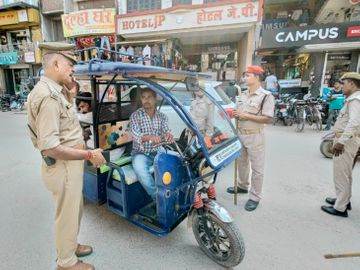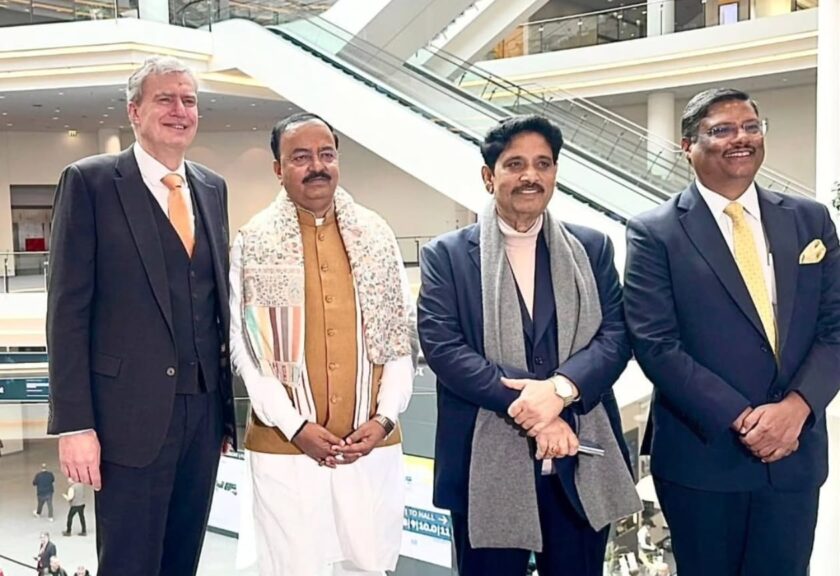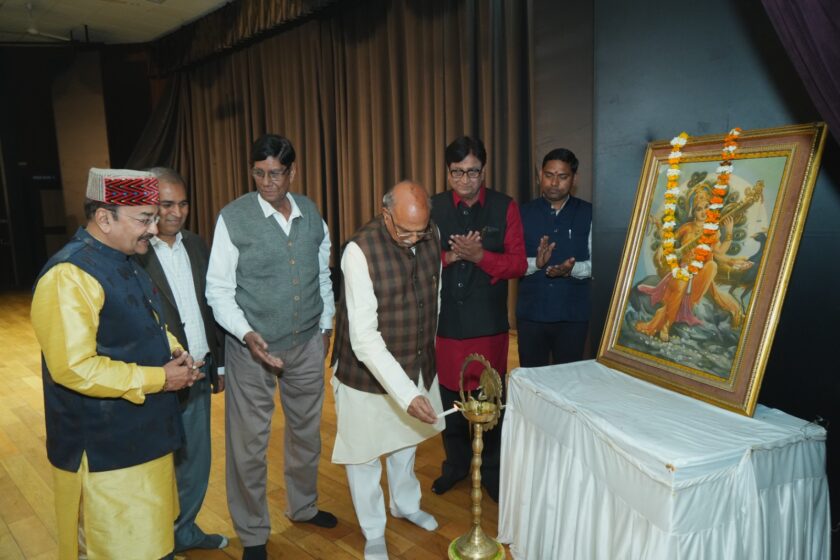Lucknow– In a landmark move aimed at regulating urban transport and tackling rising pollution levels, the Uttar Pradesh government has made it mandatory for all auto-rickshaws and e-rickshaws to operate only with valid permits issued by local Nagar Nigam (Municipal Corporation) authorities. Announced by the Urban Development Department, the directive takes immediate effect and is expected to bring much-needed discipline to urban mobility across cities such as Lucknow, Kanpur, Agra, and Varanasi. The government hopes the regulation will streamline transport services, ensure passenger safety, and control the mushrooming growth of unregistered vehicles that add to traffic chaos and environmental stress.
The decision comes against the backdrop of an unchecked rise in auto-rickshaws and e-rickshaws, both of which play a crucial role in last-mile connectivity. While e-rickshaws are touted as eco-friendly alternatives to traditional fuel-powered autos, their rapid proliferation has led to traffic violations, unregulated parking, and safety lapses. A senior Urban Development official remarked, “The unchecked operation of auto and e-rickshaws has created disorder on the roads. By bringing them under Nagar Nigam’s permit system, we will enforce safety standards, regulate fares, and monitor pollution levels while encouraging cleaner vehicles.”
Under the new regulations, all autos—whether CNG, LPG, or petrol-driven—and e-rickshaws must secure a permit from the local Nagar Nigam before operating in urban areas. The permit will define designated zones and routes, preventing overcrowding in high-traffic areas. Applicants will have to provide documents including proof of identity, address, a valid driving license, and a medical fitness certificate. E-rickshaw operators will additionally need to furnish a Pollution Under Control (PUC) certificate, insurance papers, and the original purchase invoice of their vehicle. For conventional auto-rickshaws, stricter checks will be enforced on older two-stroke engines notorious for high emissions.
The new system also introduces permit fees, varying by city and vehicle type, with revenues earmarked for civic infrastructure. Permits will require timely renewal and will be subject to inspections by Nagar Nigam authorities. Vehicles will have to comply with safety norms, including functioning headlights, taillights, indicators, horns, and reflectors. For e-rickshaws, speed limits between 25–35 km/h have been fixed to safeguard pedestrians and ensure smoother traffic flow. Drivers will also undergo mandatory training in road safety and responsible driving.
In keeping with the government’s push toward digital governance, the permit application process will be handled through the e-Nagarsewa Portal, enabling online applications, fee payments, and tracking. Nagar Nigams have been directed to set up dedicated permit processing cells. In Lucknow, Additional Municipal Commissioner Namrata Singh confirmed that the move will also generate much-needed revenue to fund civic amenities. To enforce compliance, Nagar Nigams will coordinate with Regional Transport Offices (RTOs) and local police. Offenders operating without permits face fines, vehicle impoundment, or both. Plans are also underway to set up designated parking and charging hubs for e-rickshaws.

The announcement has triggered a mix of reactions among stakeholders. While several drivers and unions have expressed concern about the financial burden of permit fees, others see the regulation as a step toward fair competition. Mohammed Aslam, an e-rickshaw driver from Kanpur, argued, “We barely manage our daily earnings. Extra fees will make survival tougher.” On the other hand, Rajesh Kumar, an auto driver in Agra, welcomed the move, saying, “Unregistered vehicles hurt genuine drivers. This system will ensure legitimacy.” Commuters too have voiced cautious optimism. Ritu Sharma, a daily passenger in Lucknow, noted, “If permits improve driver accountability and reduce overcharging, it will be beneficial, though fares may rise.” Environmental groups have largely praised the directive, viewing it as aligned with national schemes like FAME-India, which promote electric vehicles.
Despite its promise, challenges persist. The absence of uniform e-rickshaw design and safety standards continues to worry regulators, while caps on permits in some cities could inadvertently fuel a black market in older vehicles. The state government has assured drivers that these challenges will be addressed through awareness campaigns, subsidized loans, and investments in charging infrastructure. Strong coordination between Nagar Nigams, RTOs, and the Transport Department will be key to success.
The regulation marks a turning point in Uttar Pradesh’s urban transport policy. By focusing on passenger safety, environmental sustainability, and structured operations, the state aims to transform the auto and e-rickshaw sector into a more disciplined and eco-friendly system. Its impact, however, will depend on efficient enforcement and stakeholder cooperation. As Lucknow and Kanpur begin implementation, the state will serve as a test case for how regulated last-mile transport can reshape mobility in India’s growing cities.
For more details on the permit process, operators can log on to the e-Nagarsewa Portal (services.india.gov.in) or approach their nearest Nagar Nigam office.









